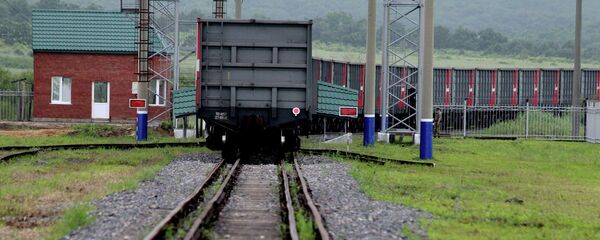“I believe these discussions will have positive results,” Zheng said, without elaborating.
Sputnik spoke with an expert from the Center for the Study of Finance and Banking at the People's University of China Bian Yongzu who said that the trend of developing China's relations with Australia and New Zealand is invariably most favorable as there is a very strong complement to their economies.
China is Australia’s biggest trading partner and the two have a wide-ranging free trade deal.
However, according to the expert, since last year some complications have emerged in the Sino-Australian relations. In particular, Australia, being an ally of the United States, allowed it to deploy new military units on its territory.
“On the issue of the South China Sea harsh statements were made in Canberra which further affected relations with Beijing. In addition, Australia, as a TPP member became disillusioned with this mechanism after Donald Trump became the president and withdrew the US from this project,” Yongzu said.
The expert further said that in 2015 China and Australia signed an agreement on a free trade zone. The parties pledged to clear customs duties on the majority of goods in four years. Two years have passed and it has become clear that there are some provisions in this document that need improvement.
“In the development of the free trade zone there are also some issues that need an urgent solution and that will be one of the main points in the negotiations,” the expert said.
Furthermore, the expert pointed out that Oceania and the South Pacific have an extremely important place in the construction of the Silk Road and Australia and New Zealand are both maritime states.
Meanwhile, Reuters reported on March 21 that according to information from two of its sources, contrary to the hopes of signing such a document, it is probably not going to happen right now. “In the future, of course, such an opportunity for further cooperation will be presented,” according to one of the anonymous sources, however right now it is possible that Australia will wait on the other major Western economies to react to the Chinese initiative.
Russian expert from the Institute of Oriental Studies Elena Fomicheva told Sputnik that Trump’s rejection of the TPP has given rise to some discord in those countries that have acceded to this agreement.
“Australia and New Zealand, along with Japan are among those countries that have not given up hope of a possible resuscitation of this project. This project has an anti-Chinese orientation. It would be natural for them to unite around the United States. However, China, using some turmoil and uncertainty in the US foreign policy, is trying to strengthen its position in the region,” Fomicheva said.
She further said that China has normal relations with ASEAN states. Whereas, with Australia and New Zealand things are more complicated, so “China is trying to drag the two countries over to its side because the Silk Road project, in general, is anti-American.”
“In addition, Trump's statements about rejecting global leadership and China's statements about his responsibility for global affairs alarms the US allies — Australia and New Zealand, who are apparently trying to determine for themselves the degree of rapprochement with China,” the expert concluded.



